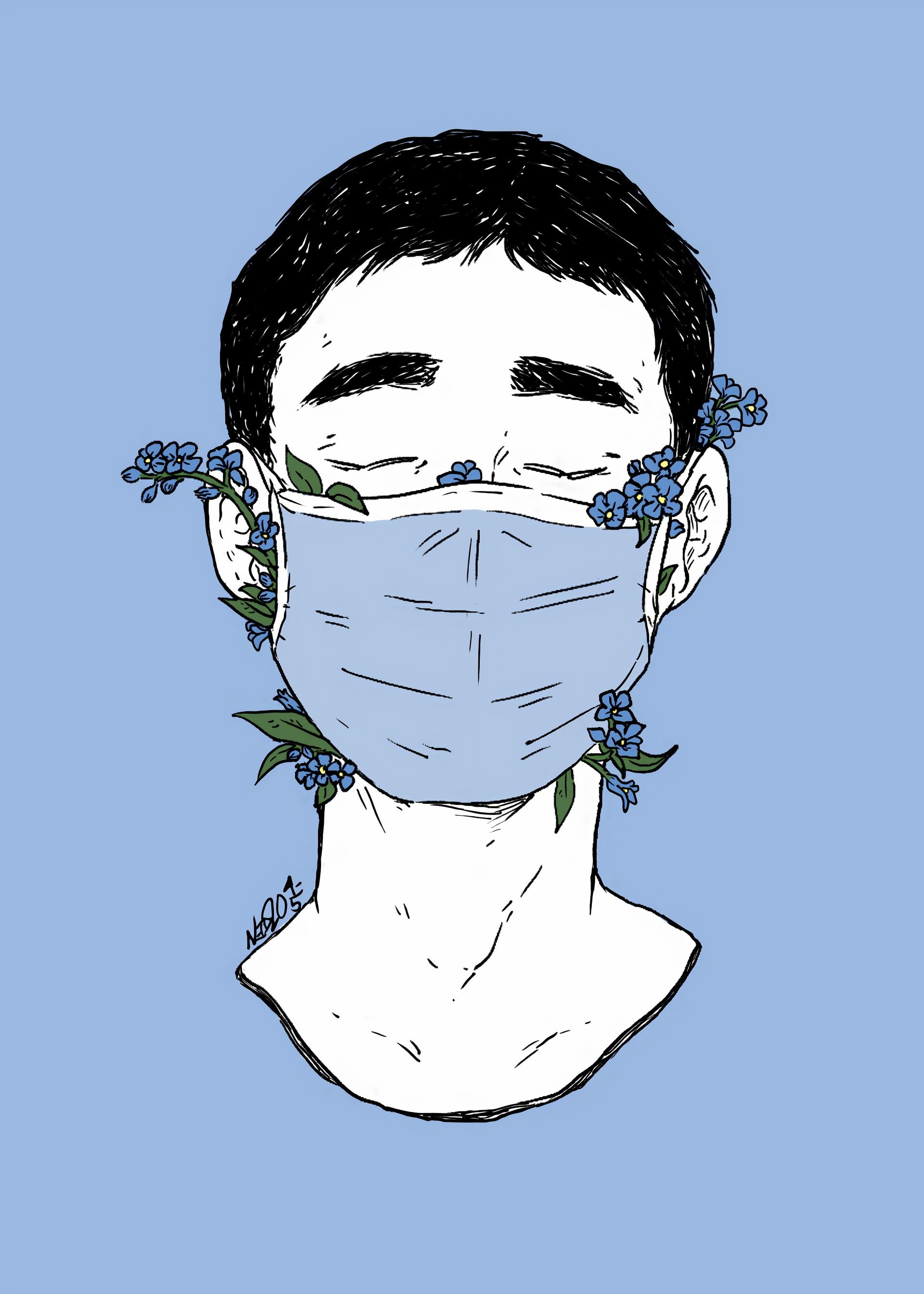I noticed early on during the lockdown in California that talking about quarantine experiences was akin to talking politics in America.
We kind of assume we’re on the same page and then realize, somewhat awkwardly, midway through the text or phone conversation that we’re not.
One person’s keen for schools to reopen. The other is horrified the other would send their kids to school, even if they did reopen. Somebody thinks a socially-distanced-playdate in week seven is reasonable, somebody else is adamant “quarantine buddies” is not a thing. One parent is moaning about homeschooling, and the other replies they’re kind of enjoying all the added family time and bonding.
In the context of these very different views on lockdown, I’ve had quite a few psychotherapy clients confide in me, “You know, I feel awful saying this, and I’d only say it to you, but I really don’t want this lockdown to end.”
For many people COVID-19 has meant tangible and traumatic losses—losing their jobs, losing loved ones, not knowing how to pay bills. But what about the privileged camp of people who aren’t medical workers on the front lines, and who aren’t worried about how to pay for food or rent—who have just spent many weeks mostly inside their homes?
It got me thinking about who has fared well and who has fared poorly during COVID-19. Why have some people been tearing their hair out during lockdown, whilst others have done just fine? Judging by my psychotherapy practice, six factors seem to determine outcomes.
1. History of anxiety, depression, or trauma matter.
One of the hallmarks of what leaves a trauma imprint is being stuck somewhere, not able to move and not knowing when, or if, the experience will ever end. In the early weeks of the lockdown, some of my clients shared they were really struggling.
“It’s like after the birth of my first child, when I had really crippling postpartum anxiety. I felt my whole world had turned upside down and I wasn’t sure if things would ever go back to normal again—there was no light at the end of the tunnel.”
The lockdown, and the uncertainty around when it would lift, was triggering the older trauma of being trapped in a maze of exhaustion and anxiety.
Clients who had a history of depressive episodes struggled with slipping into tendencies that were reminiscent of their depression—not showering daily, not always brushing their hair, not getting out of sweatpants, watching copious amounts of Netflix, and going to bed too late. On the one hand, it felt like an inviting cocoon, on the other hand, they knew they were on a slippery slope.
There were some surprises though. Some clients who typically always felt anxious now felt much better. Since the other shoe had actually dropped, and the world seemed to be falling apart, they felt strangely more peaceful. It was as if the rest of the world had finally caught up with them, and it was oddly comforting that everybody else was finally freaking out and worried.
2. Degree of stuckness and limbo pre-COVID-19 made a big difference.
A big indicator of how lockdown felt depended on how stuck somebody’s life felt pre-COVID-19. Those who were job hunting or single-in-search-of-a-partner, or generally felt a little lost or directionless, tended to struggle all the more during lockdown. A life that already felt “in limbo” was now in limbo more indefinitely, since most forms of job hunting, dating, and figuring out their place in the world, had abruptly stopped.
3. More feelings meant addictive tendencies with food or alcohol tended to spiral.
Anyone who struggled with food, alcohol, or addictive tendencies had a hard time with binges or overindulging. The lack of distractions meant people were in pseudo-meditation-retreats, inadvertently forced to sit with their feelings more. The feelings were particularly heightened for those who ran small businesses that were now in distress, or for those who weren’t sure how long they’d still have a job.
If they weren’t good at tolerating their feelings and uncomfortable physical sensations, then constant snacking, eating, smoking, or drinking typically ensued. Which easily slipped into: “What does it matter anyway, I don’t need to fit into my jeans or go anywhere, so I might as well just watch another show.”
Food issues were particularly nightmarish, since people who struggle with disordered eating often prefer having small amounts of food around (at least in early recovery), which was more difficult in the days of panic buying and overburdened online delivery services. Plus, bingeing on stocked up “pandemic food” when some supermarkets had empty shelves meant feeling even more guilt-ridden than usual.
4. Existing relationship dynamics got amplified.
The quality of emotional connection in intimate relationships was massively highlighted during lockdown. Plenty of marriages have mediocre communication, but it’s not that obvious in normal times, because it gets diluted with seeing friends, leaving to the office, going to the gym, travel, and so forth.
There was much less wiggle room in quarantine, and communication (or lack thereof) was under a spotlight every day. Stressed couples tended to go cold, and frosty, and passive-aggressive, with the accompanying loneliness and disconnect. Or, they went the other way—with more fights, more aggression, more tears, and more heat. Couples who felt emotionally connected pre-COVID, felt more bonded and grateful for each other (even when the lockdown felt difficult).
5. Young kids impacted levels of exhaustion.
A big factor in how people experienced the lockdown depended on whether they had young kids or not. Anybody who had young kids that went to preschool, kindergarten, or first or second grade, was in for a surprise. Trying to get kids to log in to the right apps, websites, and Zoom classes week in and week out, was a challenge—ridiculously so if it was a two-parent,working household.
Other factors played biggish roles. City versus countryside. Apartment versus house. Only child versus siblings. Au pair or grandma (or some sort of help) versus no help at all. Certainly many parents felt more connected with their kids as a result of the lockdown, but none with young kids were feeling rested.
6. Introversion or extroversion had predictable outcomes.
Unsurprisingly, introverts had an easier time with the lockdown. For introverts, quarantine offered the best of both worlds—an ability to stay quiet without any of the usual guilt or “I’m hiding and shouldn’t be” thoughts.
Whilst extroverts tended to experience cabin fever quicker than others, overall, it felt like for many, there were some aspects of the enforced slow down that felt beneficial. The lack of commuting especially, was often deeply restorative. The biggest challenge for people who were used to jumping on planes and having a hectic schedule, was the way one day blended into another. Without “things to look forward to” the days or weeks felt more repetitive or “wasted.”
Allow for confusing feelings as restrictions loosen.
Overall, my sense is that for many, whilst there have been some real challenges to the lockdown and there are probably plenty of ways we’ll all be relieved when it’s over (whatever “over” actually looks like), the lifting of restrictions might be strangely bitter sweet. Whether that is ever voiced out loud is a different matter.
From what I’m seeing in my practice, people are trying to hold onto some of the lockdown aspects that they valued as things return to a “new normal.”
The key point I’m hearing over and over again is that so many have enjoyed a slower pace of life. And that a big takeaway from this experience is remembering to do less, and say no, more often—in the face of increased opportunities and pressures to do more.
~


 Share on bsky
Share on bsky





Read 4 comments and reply